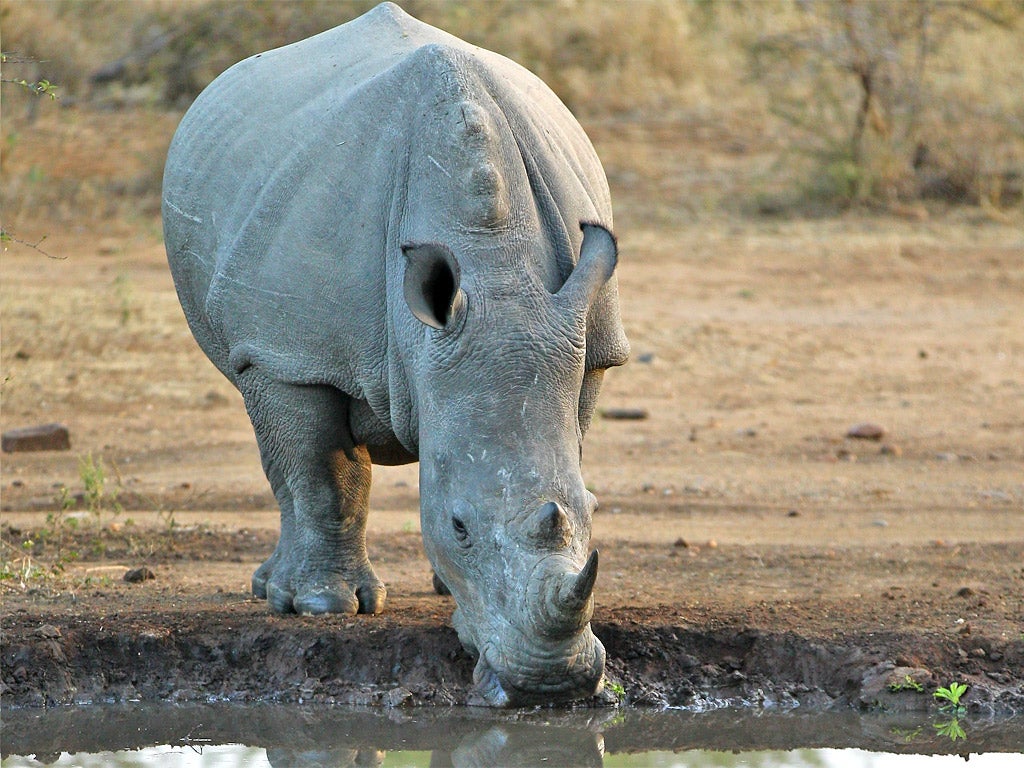Number of rhinos killed by poachers hits new high

Your support helps us to tell the story
From reproductive rights to climate change to Big Tech, The Independent is on the ground when the story is developing. Whether it's investigating the financials of Elon Musk's pro-Trump PAC or producing our latest documentary, 'The A Word', which shines a light on the American women fighting for reproductive rights, we know how important it is to parse out the facts from the messaging.
At such a critical moment in US history, we need reporters on the ground. Your donation allows us to keep sending journalists to speak to both sides of the story.
The Independent is trusted by Americans across the entire political spectrum. And unlike many other quality news outlets, we choose not to lock Americans out of our reporting and analysis with paywalls. We believe quality journalism should be available to everyone, paid for by those who can afford it.
Your support makes all the difference.The number of rhinos killed by poachers has hit a new record, raising worries of a downward population spiral in a country that is home to almost all of Africa’s rhinos.
In the 12 months to the end of September, 704 rhinos had been killed by poachers in South Africa, exceeding the record of 668 set in 2012, according to data provided by the environment ministry.
If the trend continues at this pace, more than 1,000 rhinos would be killed in 2014, putting the species on the brink of a population decline that the ministry has said could lead to the end of wild rhinos in about a decade.
The greatest threat to the estimated 22,000 rhinos in South Africa comes from those trying to cash in on the black market value of their horn, which sells at prices higher than gold. Many of the poachers come from neighbouring Mozambique and sell the horn to crime syndicates to feed rapidly rising demand in South-east Asia, where the horn is thought by some to cure cancer and tame hangovers.
“We need people to be ashamed of this. The fact that our rhinos are killed is because there is a market out there. There are people who are coming to steal our heritage,” said Fundisile Mketeni, a biodiversity official at the ministry.
Reuters
Join our commenting forum
Join thought-provoking conversations, follow other Independent readers and see their replies
Comments